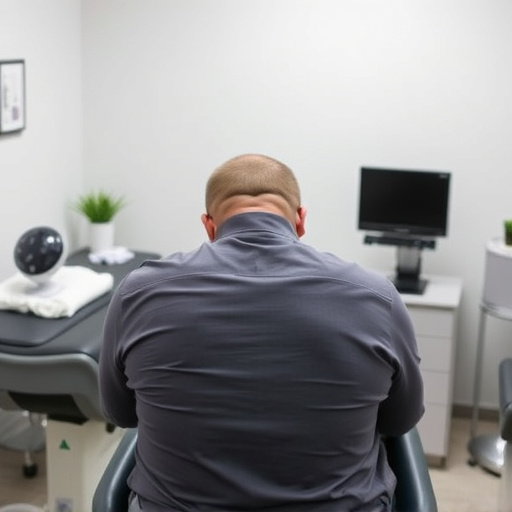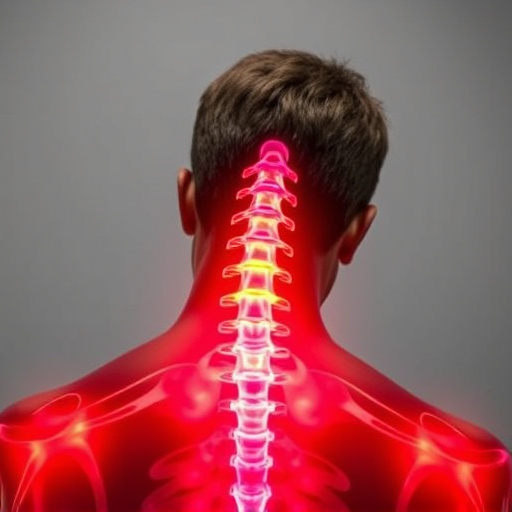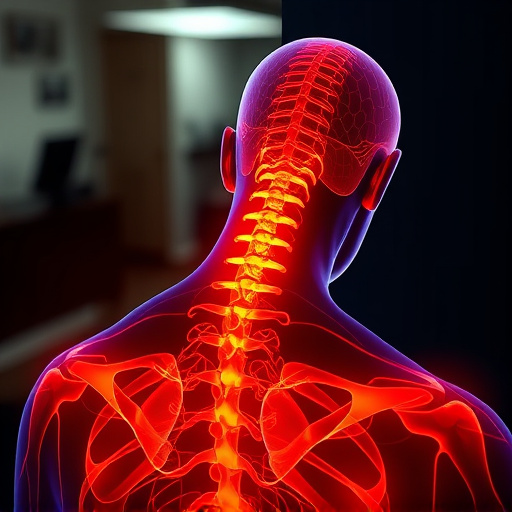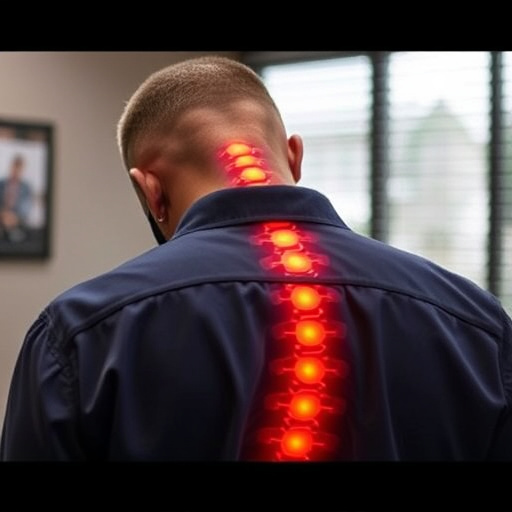Whiplash treatment specialists address severe pain from car accidents, utilizing advanced management strategies. Through comprehensive assessments, they diagnose and tailor treatments including non-pharmacological approaches like physical therapy, acupuncture, and chiropractic care. Interventional procedures such as epidural injections, nerve blocks, and radiofrequency ablation offer precise pain relief for chronic whiplash conditions. Mind-Body practices are integrated to holistically address both physical and psychological aspects of pain, promoting long-term recovery and improved quality of life.
In today’s world, managing severe pain effectively is paramount for maintaining quality of life. This article delves into advanced techniques tailored to combat chronic conditions, focusing on whiplash treatment as a case study. We explore diverse approaches from non-pharmacological methods like physical therapy to interventional procedures and mind-body practices. By examining real-world applications through case studies, we provide insights from leading whiplash treatment specialists, offering comprehensive strategies for long-lasting pain relief.
- Understanding Severe Pain: Causes and Diagnosis
- Non-Pharmacological Approaches for Whiplash Treatment
- The Role of Physical Therapy in Advanced Pain Management
- Interventional Procedures: Targeted Relief for Chronic Conditions
- Mind-Body Practices for Long-Lasting Pain Alleviation
- Case Studies: Successful Strategies Employed by Whiplash Treatment Specialists
Understanding Severe Pain: Causes and Diagnosis

Severe pain, often characterized by its intensity and persistence, requires advanced management techniques to effectively alleviate suffering. Understanding the root causes is a critical first step. Severe pain can arise from various conditions, including injuries like whiplash, where rapid or violent back-and-forth movement of the neck leads to muscle spasms, ligament damage, and nerve irritation.
Diagnosing severe pain accurately involves comprehensive assessments by healthcare professionals, such as whiplash treatment specialists. They may employ imaging tests like MRI or CT scans to visualize internal injuries, conduct physical examinations to assess range of motion and identify tender points, and gather detailed patient history to pinpoint the onset and nature of the pain. Accurate diagnosis is key to tailoring appropriate treatments for effective management.
Non-Pharmacological Approaches for Whiplash Treatment

Whiplash, a common injury often associated with car accidents, can be effectively managed through non-pharmacological approaches, making it crucial for victims to consult with a whiplash treatment specialist. Techniques such as physical therapy, including specialized exercises and manual adjustments, have proven successful in reducing pain and improving mobility. These methods focus on strengthening the neck muscles, increasing flexibility, and restoring the body’s natural alignment, all of which contribute to long-term recovery.
Alternative therapies like acupuncture and chiropractic care are also gaining recognition. Acupuncture involves inserting thin needles at specific points to stimulate healing, while chiropractic care focuses on adjusting the spine to reduce pressure on affected areas. These non-invasive methods offer pain relief and can be tailored to individual needs, making them valuable alternatives for those seeking whiplash treatment without relying heavily on medication.
The Role of Physical Therapy in Advanced Pain Management

Physical therapy plays a pivotal role in advanced pain management, especially for conditions like whiplash that often require specialized care. Whiplash treatment specialists employ a range of techniques beyond traditional exercises to address complex pain patterns associated with this condition. These may include manual therapy, targeted stretches, and specific movement strategies tailored to reduce inflammation, improve spinal mobility, and alleviate chronic pain.
Such therapists also help patients develop coping mechanisms and educate them on maintaining good posture and ergonomic habits to prevent exacerbating symptoms. By integrating physical therapy into comprehensive care plans, patients can achieve better mobility, reduced dependency on medications, and improved quality of life in managing severe pain associated with conditions like whiplash.
Interventional Procedures: Targeted Relief for Chronic Conditions

Interventional procedures have emerged as a powerful tool for managing chronic pain conditions, particularly those involving whiplash injuries. These targeted treatments offer hope to patients who may have exhausted traditional therapy options. A whiplash treatment specialist can employ various techniques such as epidural injections, nerve blocks, and radiofrequency ablation to precisely target areas of inflammation and pain.
By delivering medication directly to the affected regions, these procedures provide immediate and sustained relief. For instance, epidural steroid injections reduce swelling and inflammation in the spinal canal, easing pressure on nerves that contribute to chronic whiplash pain. Similarly, nerve blocks can interrupt pain signals, offering a window of comfort for patients. Advanced techniques like radiofrequency ablation use heat to disrupt problem nerves, potentially providing long-lasting relief from severe pain associated with whiplash injuries.
Mind-Body Practices for Long-Lasting Pain Alleviation

Mind-Body practices offer a powerful approach for managing severe, chronic pain conditions like whiplash. Techniques such as mindfulness meditation, yoga, and deep breathing exercises have been scientifically proven to reduce pain perception and improve overall well-being. These practices foster a state of relaxation, promoting better sleep quality and enhancing the body’s natural healing mechanisms.
Whiplash treatment specialists often incorporate mind-body therapies into comprehensive care plans as they address not just physical symptoms but also psychological aspects of pain. By engaging in these practices regularly, individuals can achieve long-lasting pain alleviation, improve their quality of life, and reduce reliance on medications for managing their condition.
Case Studies: Successful Strategies Employed by Whiplash Treatment Specialists

Whiplash treatment specialists are renowned for their expertise in managing severe pain stemming from whiplash injuries, often seen in car accidents. Their successful strategies offer valuable insights for healthcare professionals treating similar conditions. Case studies of these specialists highlight several key techniques. One common approach involves combining physical therapy with targeted medication to reduce inflammation and manage pain effectively. Manual therapy, such as spinal manipulation and soft tissue release, is another powerful tool used by these experts to restore mobility and alleviate discomfort.
Additionally, whiplash treatment specialists emphasize the importance of personalized care, tailoring treatments to individual patient needs. They often incorporate advanced diagnostic techniques to pinpoint problem areas accurately. By integrating modern technology with traditional methods, these specialists achieve remarkable outcomes, helping patients regain their mobility and quality of life after suffering from whiplash-related pain.














